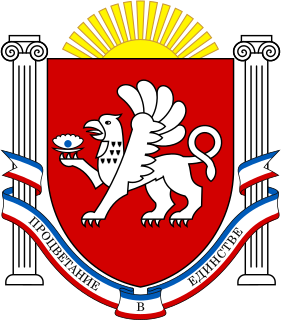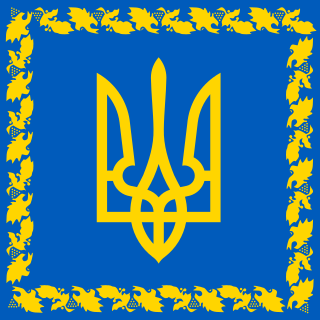
The Socialist Party of Ukraine is a social democratic political party in Ukraine. It is one of the oldest parties and was created by the former members of the Soviet-era Communist Party of Ukraine in late 1991 when the Communist Party was banned. It was part of the Verkhovna Rada from 1994 to 2007 and was long the fourth biggest party of Ukraine. Since 2007 the election results of the party have been extremely marginal.

Elections in Ukraine are held to choose the President, Verkhovna Rada, and local governments. Referendums may be held on special occasions. Ukraine has a multi-party system, with numerous parties in which often not a single party has a chance of gaining power alone, and parties must work with each other to form coalition governments.
The Constitution of Ukraine is the nation's fundamental law. The constitution was adopted and ratified at the 5th session of the Verkhovna Rada (parliament) of Ukraine on June 28, 1996. The constitution was passed with 315 ayes out of 450 votes possible.

Oleksandr Oleksandrovych Moroz is a Ukrainian politician. He was the Speaker of Verkhovna Rada (parliament) of Ukraine twice: July 2006 to September 2007, and previously in 1994 through 1998. Moroz is one of the founders and leader of the Socialist Party of Ukraine, which was an influential political party in Ukraine. Moroz lost Parliamentary representation when the Socialist Party of Ukraine failed to secure sufficient number of votes (2.86%) in the 2007 snap election falling 0.14% short of the 3% election threshold.

The Ukrainian parliamentary election took place on 26 March 2006. Election campaigning officially began on 7 July 2005. Between November 26 and 31 December 2005 party lists of candidates were formed.
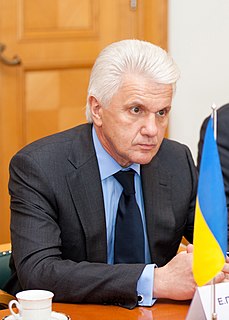
Parliamentary elections were held in Ukraine on 31 March 2002. The Our Ukraine bloc emerged as the largest faction in the Verkhovna Rada, winning 111 of the 447 seats.

The State Council of Crimea is the parliament of the Republic of Crimea. It had previously been called the 'Supreme Council of Crimea but changed its name in March 2014 following a vote by the Ukrainian parliament to dissolve the Supreme Council of Crimea. The Parliament is housed in the Parliament building in the centre of Simferopol.
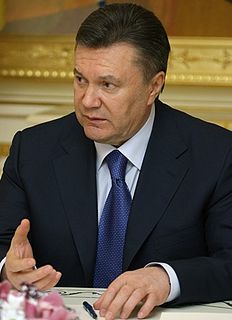
Early parliamentary elections in Ukraine took place on 30 September 2007. The date of the election was determined following agreement between the President Viktor Yushchenko, the Prime Minister Viktor Yanukovych and the Chairman of the Verkhovna Rada Oleksandr Moroz on 27 May 2007, in an attempt to resolve the political crisis in Ukraine triggered by the 2 April 2007 presidential decree on dissolution of Ukraine's parliament.
The politics of Crimea today is that of the Republic of Crimea on one hand, and that of the federal city of Sevastopol on the other, within the context of the largely unrecognised annexation of Crimea by the Russian Federation in March 2014.

The Party "Soyuz" is a national political party of Ukraine that is mostly based in Crimea. It was registered in June 1997 under a registration number 867.
The 2008 Ukrainian political crisis started after President Viktor Yushchenko's Our Ukraine–People's Self-Defense Bloc (NU-NS) withdrew from the governing coalition following a vote on a bill to limit the President's powers in which the Prime Minister's Bloc Yulia Tymoshenko (BYuT) voted with the opposition Party of Regions. The bill would have required the consent of the Prime Minister for the appointment and dismissal of the Prosecutor General by the President, given the government power to appoint local heads of government if the President rejects the candidates, stripped from the President the right to reject a candidate for Prime Minister, dismiss the Defense, Interior and Foreign Ministers, and appoint a head of the State Intelligence Service. President Yushchenko stated that a clear position on the events in Georgia was one of the conditions under which return to talks in the Parliament was possible, as well as the repeal of all the constitutional laws adopted after 3 September. Yushchenko claimed that a "de-facto coalition" was formed with 'no other aims but to conduct coup d'état and usurp power in the country'. Tymoshenko stated that the real intentions behind the President's party in 'declaring war on her' was to ensure his victory in the next presidential election, although she still called for a reformation of the coalition between the two parties. She also reiterated her position on the Georgian conflict, claiming to be neutral and more in line with the EU.
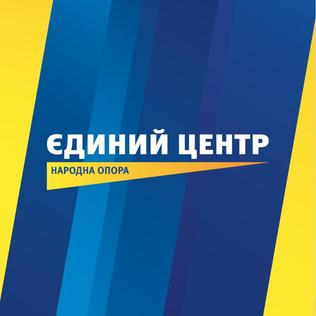
United Centre is a Ukrainian political party. It is an offspring of Our Ukraine. Legally United Centre is the successor of the Party of Private Property, registered with the Ministry of Justice on September 24, 1999. The party changed its name to United Centre in March 2008.

The 2006 Crimean parliamentary election were held on 26 March 2006. These were the first elections to the Verkhovna Rada of Crimea, which were conducted on the proportional election system. In order to gain representation in the Parliament of the Autonomous Republic of Crimea, the party or bloc had to get at least 3% of the vote.

Russian Bloc is a currently banned political party in Ukraine; that was registered in March 2001.

The 2010 Ukrainian local elections took place on 31 October 2010, two years before the 2012 general election. The voter turnout across Ukraine was about 50%, which is considered low in comparison to previous elections.

The Verkhovna Rada of Ukraine of the 8th convocation is the current convocation of the legislative branch of the Verkhovna Rada, Ukraine's unicameral parliament. The 8th convocation meets at the Verkhovna Rada building in Kiev, having begun its term on November 27, 2014 following the last session of the 7th Verkhovna Rada. Its term will last five years and is scheduled to close its last session on November 27, 2019.

The next Ukrainian parliamentary elections must be held no later than 2019. Due to the March 2014 annexation of Crimea by Russia and the occupation of parts of Donetsk Oblast and Luhansk Oblast by separatists, only 424 seats in Verkhovna Rada can currently be elected under current laws and roughly 12 percent of voting-age citizens cannot participate in the elections. Under current election laws 225 members of the Verkhovna Rada are elected by nationwide open party-list proportional representation with 5% electoral election threshold and the other 199 seats elected in constituencies with a first-past-the-post electoral system in one round.

